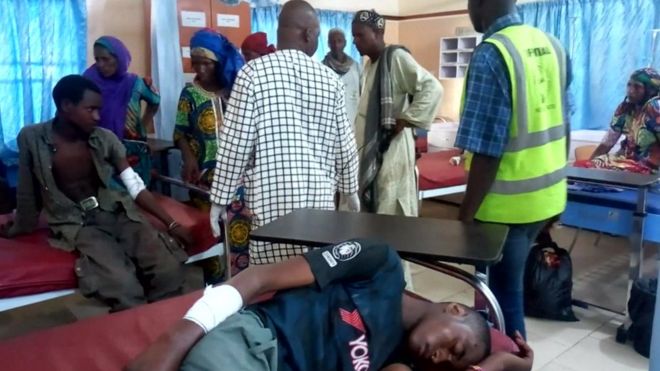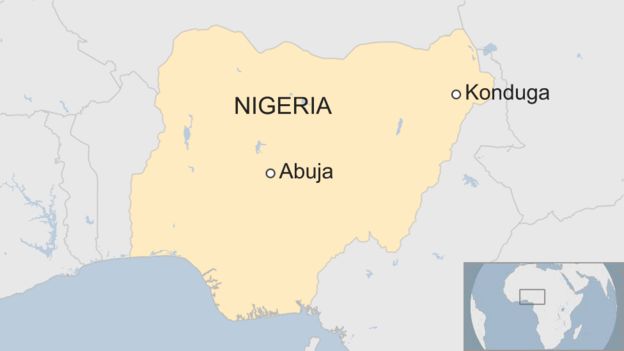Nigeria suicide blast kills 30 football fans in Borno
 AFP
AFP
At least 30 people have been killed in a suicide attack while watching a televised football match in north-eastern Nigeria, officials say.
Another 40 were injured in the triple suicide bombing, according to the state emergency management agency.
The bombers detonated their explosives outside a video hall in Konduga village in Borno State.
Militant Islamist group Boko Haram is being blamed for the attack. There was no immediate comment from the group.
Formed in Borno State, the group has waged a brutal insurgency across the north-east for a decade.
- Africa Live: Updates on this and other stories from the continent
- Who are Boko Haram?
- The town that lost its girls
- 'How I almost became a suicide bomber'
Ali Hassan, leader of a self-defence group in Konduga, told AFP news agency that the owner of the hall had prevented one bomber from entering.
"There was a heated argument between the operator and the bomber who blew himself up," he said.
Two other attackers who were nearby then set off their devices.

Konduga has been targeted before. In July 2018, eight people were killed after a suicide bomber detonated explosives in a mosque.
At least 27,000 lives have been lost and about two million people forced to flee their homes in the conflict with Boko Haram.

'Daunting and complex security challenges'

This latest attack comes at the end of a bloody weekend in northern Nigeria. There is rising concern of insecurity in other parts of the country.
On Friday night an armed gang killed at least 34 people in the north-western state of Zamfara, which has been at the centre of a wave of attacks by bandits since the beginning of the year.
The Boko Haram insurgency has been terrorising people in the north-east for the past decade, and has been the main area of focus for Nigeria's armed forces.
But the triple suicide bombings in Borno on Sunday reflect just how complex the security challenges are.
The government has said that Boko Haram and the rival Islamic State of West Africa Province (Iswap) group are on their last legs. But both the military and population of the north-east continue to suffer regular attacks.
Although Boko Haram has lost a lot of the territory it held in the north-east in the last four years, it is still attacking soft targets in mosques, markets and public gatherings.
Combine this with the ongoing banditry attacks in the north-west, and kidnappings across the country's highways, and the scale of the security challenges is daunting.

No comments:
Post a Comment